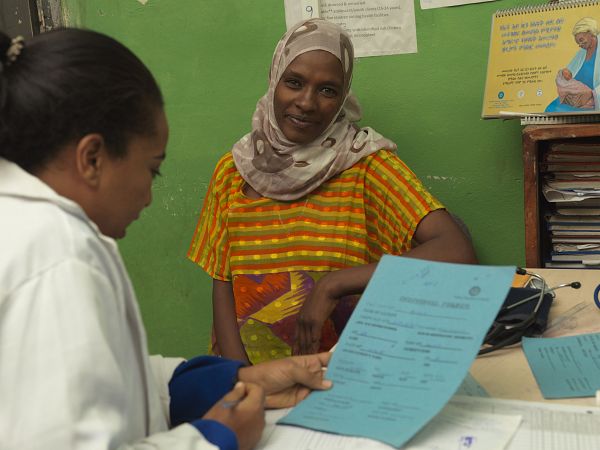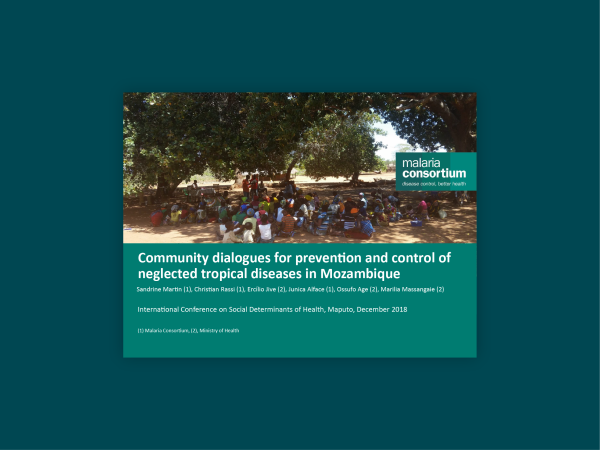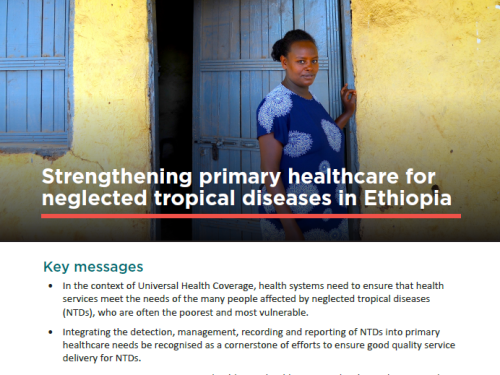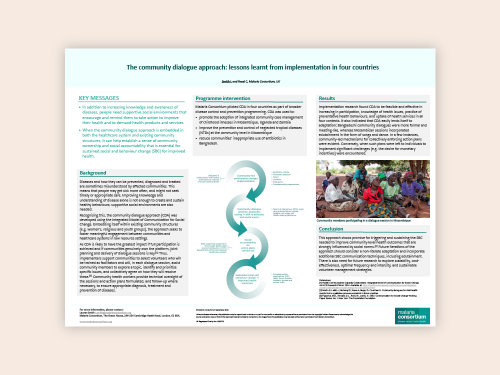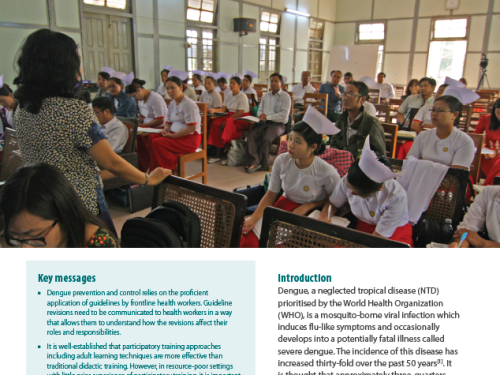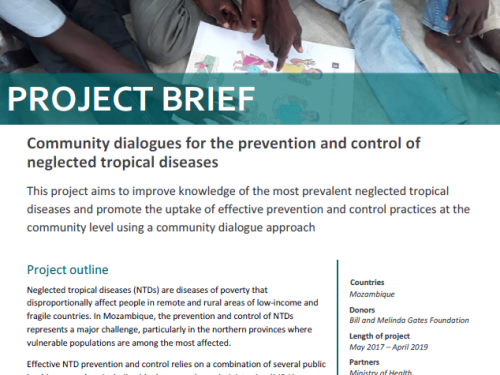Community dialogues for prevention and control of neglected tropical diseases
April 2014 - December 2016
The World Health Organization currently prioritises 17 neglected tropical diseases (NTDs), which disproportionately affect low-resource communities in developing countries. Of these diseases, five are preventable through the distribution of drugs to entire populations regardless of disease status – an approach known as mass drug administration (MDA). To maximise populations’ protection from NTDs, preventive chemotherapy also needs to be complemented by effective case management, vector control and the adoption of basic sanitation and hygiene practices. Despite efforts to implement MDA in many regions of Africa, delivery has often been a challenge due to supply chain issues and low levels of community uptake.
This study examined the community dialogues approach as a method of improving knowledge and practices for the prevention and control of schistosomiasis – one of the most devastating of the NTDs – at the community level. Because MDA has to be sustained and repeated over a number of years until the area is free of the disease, interventions can be greatly strengthened or weakened by community perceptions and understanding of NTDs and the MDA approach. Community perceptions also influence how widely prevention mechanisms such as the use of latrines are adopted among populations living in endemic areas. Therefore NTD control programmes could benefit from the inclusion of social mobilisation and participatory components in their interventions, since these allow for greater ownership of health issues facing the community.
Following on Malaria Consortium’s previous experience implementing the community dialogues approach as part of integrated community case management, this method was again chosen for improving knowledge and practice surrounding NTDs. The community dialogues approach enabled community members to make informed choices for individual or collective action to improve their health. It involved training community-selected facilitators who organise and host a series of dialogue sessions. Tools were also provided to guide participants through a 10-step process to discuss schistosomiasis prevention and control. This method proved to be flexible and sustainable, with facilitators taking ownership of the dialogues once they had been provided with the appropriate tools and training.
Community dialogues were conducted in four districts of Nampula province in northern Mozambique between August 2014 and November 2015. The study found that community dialogues are a promising community engagement approach for improving schistosomiasis prevention and control. They are practical in resource-poor settings, because they use community volunteers and require little investment beyond the development of materials and training. Detailed results will be published over the coming months.
Resources
Visual flipchart for community dialogues No.1
Visual flipchart for community dialogues No.2
Visual flipchart for community dialogues No.3
Infographic: Schistosomiasis - Knowledge, attitudes and practices in Nampula province, Mozambique
Project brief: Community dialogues for prevention and control of neglected tropical diseases
News 24/09/2014: Tackling neglected tropical diseases within the community
Journal article: Have you heard of schistosomiasis? Knowledge, attitudes and practices in Nampula province, Mozambique
Presentation: Community dialogues for prevention and control of schistosomiasis in Mozambique
News 17/11/2016: Communities take good health into their own hands
back
